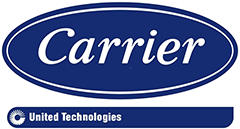Enhance efficiency, optimize production, and gain real-time insights with the power of Dynamics 365 Business Central for Manufacturing. From supply chain management to shop floor control, this comprehensive solution empowers manufacturers to drive growth, reduce costs, and deliver high-quality products on time, every time
Dynamics 365 Business Central for Manufacturing is a cloud-based ERP solution designed specifically for manufacturing companies. It helps streamline and automate various manufacturing processes, including inventory management, production planning, resource allocation, shop floor control, and financial management.
Business Central for Manufacturing also supports multi-site operations, offering the flexibility to manage multiple manufacturing sites, warehouses, and production facilities within a single system.

The solution is scalable and customizable, so you can tailor it to the specific needs of your manufacturing business. You can integrate the solution with other systems and extend its functionality as your business evolves.
In summary, Dynamics 365 Business Central for Manufacturing is a powerful business management solution that can help manufacturing companies to optimize their operations, enhance productivity, and drive business growth.
Customize Dynamics 365 Business Central for Manufacturing

Business Central allows you to configure various settings and parameters to align with your manufacturing processes. You can define manufacturing-related parameters such as production lead times, manufacturing routings, bill of materials, and work centers.

Business Central provides a user-friendly interface where you can customize pages and forms to match your specific requirements. You can modify existing pages or create new ones using the built-in development environment to add or remove fields, rearrange elements, and create custom workflows.

The system allows you to automate manufacturing processes by creating custom workflows and triggers. You can define rules and conditions to automate tasks such as order processing, material requisitions, production scheduling, and quality control.

Business Central supports integrations with other systems and applications. You can integrate with third-party manufacturing software, equipment, or specialized solutions to extend the functionality of Business Central and meet your specific needs.
Benefits of Using Dynamics 365 Business Central for Manufacturing
Dynamics 365 Business Central is a cloud-based ERP solution that can help manufacturing organizations improve their operations, optimize resource utilization, and enhance overall productivity.
Dynamics 365 Business Central provides tools and functionalities that can help automate manufacturing processes, such as production planning, material requirements planning (MRP), shop floor control, and quality control. This can help to reduce manual efforts and increase operational efficiency.
Dynamics 365 Business Central can help manufacturers to effectively manage and allocate resources such as machines, work centers, and personnel. This can help to optimize resource utilization, minimize downtime, and ensure that production capacity is aligned with demand.
Dynamics 365 Business Central offers robust inventory management capabilities, including real-time visibility into stock levels, automatic replenishment, and integration with purchasing. This can help manufacturers to maintain optimal inventory levels, reduce stockouts, and improve overall supply chain efficiency.
Dynamics 365 Business Central provides comprehensive costing features that can help manufacturers to accurately calculate and track production costs, including material, labor, and overhead costs. This information can help manufacturers to analyze profitability, make informed pricing decisions, and improve financial management.
The quality control functionalities in Dynamics 365 Business Central can help manufacturers to ensure product quality and compliance. This includes the ability to define quality parameters, create inspection plans, record test results, and manage non-conformances. This can help manufacturers to maintain consistent quality standards and reduce rework or customer complaints.
Dynamics 365 Business Central offers built-in reporting and analytics capabilities that can provide manufacturers with real-time insights into production performance, inventory levels, and financial metrics. This information can be used to track key performance indicators (KPIs), identify areas for improvement, and make data-driven decisions to drive operational efficiency.
Dynamics 365 Business Central integrates with other Microsoft solutions such as Office 365 and Power Platform, as well as third-party applications. This can facilitate seamless data sharing, collaboration, and enable end-to-end visibility across departments, fostering better communication and coordination within the organization.
Dynamics 365 Business Central is a scalable solution that can accommodate the evolving needs of manufacturing organizations. Whether a business expands its operations, introduces new product lines, or enters new markets, the solution can scale accordingly. Additionally, it offers flexibility in deployment options, including cloud-based and on-premises setups.
Integrate Business Central for Manufacturing
Dynamics 365 Business Central for Manufacturing can be integrated with other systems to enhance its functionality and streamline business processes. Here are some ways you can integrate Business Central for Manufacturing:
- APIs: Business Central offers a set of RESTful APIs that allow you to integrate with other systems. These APIs enable you to exchange data, automate processes, and extend the functionality of Business Central. You can use APIs to create, read, update, and delete data in Business Central, as well as retrieve information from and push data to external systems.
- Microsoft Power Platform: Business Central integrates seamlessly with the Microsoft Power Platform, which includes Power Apps, Power Automate (previously known as Flow), and Power BI. With Power Apps, you can build custom mobile and web applications that connect to Business Central. Power Automate allows you to create workflows and automate business processes by connecting Business Central with other systems or services. Power BI provides powerful reporting and data visualization capabilities, enabling you to create interactive dashboards and reports based on Business Central data.
- Data Import/Export: Business Central provides functionality to import and export data in various formats such as Excel, CSV, XML, and more. You can use these capabilities to integrate with external systems by importing or exporting data files between Business Central and other applications.
- Third-Party Integration Tools: There are third-party integration tools and middleware available that specialize in integrating Business Central with other systems. These tools provide pre-built connectors and integration workflows, making it easier to connect Business Central with common business applications like CRM systems, e-commerce platforms, logistics solutions, and more.
- Custom Development: If you require more complex integration scenarios or have specific requirements, you can develop custom integration solutions using the development capabilities of Business Central. You can extend Business Central using AL language and Visual Studio Code, allowing you to build custom functionality and integrations tailored to your needs.
When integrating Business Central for Manufacturing with other systems, it's essential to consider factors like data synchronization, security, and maintaining data integrity across systems. It's recommended to consult with a Dynamics 365 partner or an experienced integration specialist to design and implement the integration effectively.
Key Features Of Dynamics 365 Business Central for Manufacturing
Production Planning
This feature enables manufacturers to create production plans based on demand forecasts, sales orders, and inventory levels. Users can set up production orders, define bill of materials (BOM), specify routing operations, and calculate lead times to streamline production planning.
Material Requirements Planning
MRP functionality helps manufacturers optimize inventory levels by automatically calculating material requirements based on demand, lead times, and existing stock levels. It assists in avoiding stockouts, reducing excess inventory, and improving supply chain efficiency.
Capacity Planning
Business Central includes capacity planning capabilities that help manufacturers balance workload and optimize resource utilization. Users can define work centers, assign resources to operations, monitor capacity levels, and identify bottlenecks to ensure efficient production scheduling.
Bill of Materials (BOM) Management
BOM management allows manufacturers to define and manage the structure and components of their products. Users can create multi-level BOMs, track revisions, define variant configurations, and ensure accurate material requirements for production orders.
Quality Control
The quality control features enable manufacturers to define quality parameters and perform inspections at various stages of production. Users can create quality test plans, record inspection results, manage non-conformances, and ensure adherence to quality standards.
Costing and Financial Management
Business Central provides comprehensive costing and financial management capabilities for manufacturers. It enables tracking of production costs, including material, labor, and overhead costs. Users can analyze profitability, calculate work-in-progress (WIP) values, and gain insights into financial performance.
Integration with Supply Chain
Dynamics 365 Business Central seamlessly integrates with other modules and functionalities such as purchasing, inventory management, and sales. This integration ensures smooth coordination between different departments and streamlines end-to-end supply chain processes.
Reporting and Analytics
Business Central offers built-in reporting and analytics capabilities, allowing manufacturers to generate real-time reports and gain insights into production performance. Key performance indicators (KPIs) related to production efficiency, on-time delivery, scrap rates, and resource utilization can be tracked and analyzed.
Mobile Access
The solution provides mobile access, enabling manufacturers to access critical information, track production orders, and perform key tasks on the go. This flexibility enhances productivity and facilitates real-time decision-making.
Our Clients
FAQ's
Yes, Dynamics 365 Business Central for Manufacturing is designed to meet the needs of small and medium-sized manufacturing companies. It offers a scalable solution that can adapt to your business as it grows. You can start with the essential features and add more advanced functionality as required.
Yes, Dynamics 365 Business Central for Manufacturing supports integration with a wide range of systems and tools. It provides standard connectors and APIs that allow you to connect with other applications such as CRM systems, e-commerce platforms, payroll systems, and more. This integration helps streamline data exchange and enables a seamless flow of information across your organization.
Yes, Dynamics 365 Business Central for Manufacturing is a cloud-based solution. It allows you to access your manufacturing data and perform tasks from anywhere with an internet connection. You can use web browsers or mobile apps to access the system, providing flexibility for users who need to work remotely or on the go.
Yes, Dynamics 365 Business Central for Manufacturing supports multi-site operations. You can manage multiple manufacturing sites, warehouses, and production facilities within a single system. This helps centralize data and provides visibility across different locations, facilitating better coordination and resource allocation.
Yes, Dynamics 365 Business Central for Manufacturing offers customization capabilities. You can tailor the system to match your unique manufacturing processes and industry-specific requirements. It provides a range of configuration options, workflows, and extensions that allow you to adapt the solution to your business needs without extensive coding or development.




































